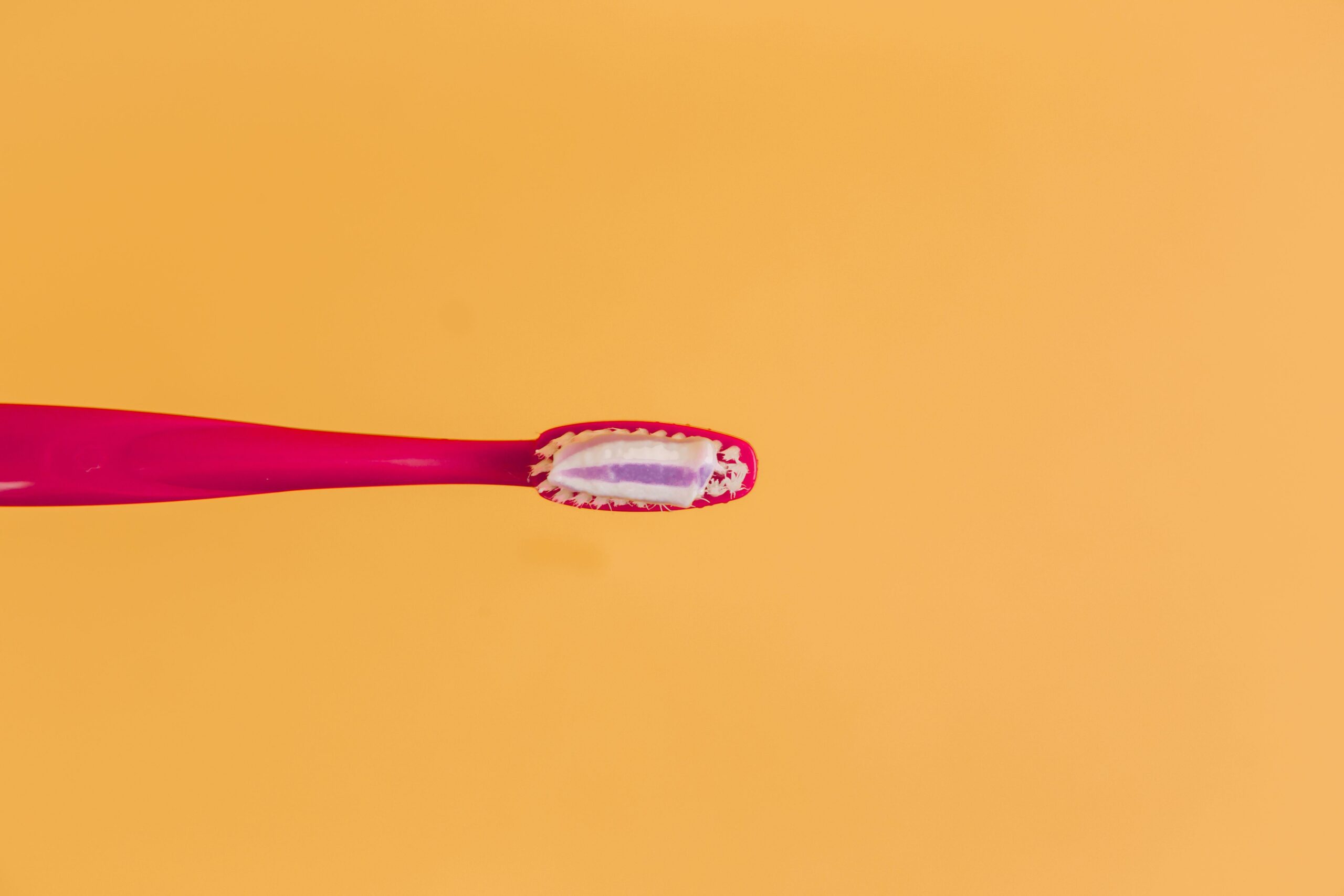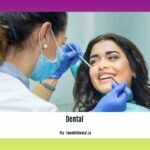Cavities are caused by acid. Even some “healthy” foods can cause cavities. As a seasoned dental professional, my goal is to equip individuals with the knowledge needed to maintain a healthy smile. With my extensive experience in oral health education and patient care, I possess a deep understanding of cavities and their causes. In this article, I will provide essential facts and insights about cavities, highlighting their significant impact on oral health. Through my expertise in preventive dentistry and treatment options, I aim to raise awareness and empower readers to effectively protect their teeth and gums. So, let’s dive into the fascinating world of cavities and unlock the secrets to optimal oral health!

Facts about Cavities
Cavities, also known as tooth decay, are a common oral health issue that can have a significant impact on overall well-being. Let’s explore some essential facts about cavities and how they can affect your oral health.
1. Cavities can cause a host of problems
Untreated cavities can lead to pain, infections, and difficulty with activities like eating, speaking, and even learning. They can also contribute to gum disease, which can ultimately result in tooth loss. It’s crucial to address cavities promptly to prevent these issues from occurring.
2. The role of bacteria and oral hygiene
Cavities are caused by a combination of factors, including bacteria in the mouth, frequent snacking, sugary drinks, and poor oral hygiene. The bacteria produce acids that erode the enamel, leading to the formation of cavities. Maintaining good oral hygiene, such as regular brushing and flossing, is vital in preventing cavities.
“Remember, good oral hygiene is your best defense against cavities.”
3. Dental sealants as a preventive measure
An effective preventive measure against cavities is the use of dental sealants. Dental sealants are thin coatings that can be applied to the chewing surfaces of teeth, acting as a barrier against bacteria and acids. This can significantly reduce the risk of cavities, especially in hard-to-reach areas.
4. The impact of tobacco use
Using tobacco products, such as cigarettes or smokeless tobacco, not only increases the risk of oral diseases like gum disease and oral cancer but also contributes to the formation of cavities. The chemicals present in tobacco can damage the teeth and gums, making them more susceptible to cavities.
5. Early treatment is crucial
Early detection and treatment of cavities are essential for maintaining long-term oral health. Regular dental check-ups allow dentists to identify cavities and address them before they worsen. Ignoring cavities can lead to more extensive damage, requiring more invasive and costly treatments down the line.
“Remember, the sooner you tackle cavities, the better your chances of preserving your natural teeth.”
6. Cavities can occur on any tooth surface
Cavities can develop on any surface of a tooth. Whether it’s the biting surface, the front, or the sides, no area is immune to the risk of cavities. Therefore, maintaining a thorough oral hygiene routine and paying attention to all tooth surfaces is vital.
7. The irreversibility of cavities
Once a cavity forms, it cannot be reversed. That’s why preventive measures and early intervention are critical. Proper dental hygiene, along with regular dental visits, can help prevent cavities from forming and minimize the need for extensive dental work in the future.
“Remember, prevention is always better than cure when it comes to cavities.”
By understanding these essential facts about cavities, you are armed with the knowledge necessary to protect your oral health. Remember to maintain good oral hygiene practices, seek early treatment if necessary, and prioritize preventive measures like dental sealants. Your smile and overall well-being will thank you for it.
Facts about cavities are not just some mundane pieces of information; they are intriguing and captivating nuggets of knowledge that can open up a whole new perspective on dental health. Did you know that dental cavities can actually be quite fascinating? From fun facts about dental cavities to vital information on tooth decay left untreated for years, there is so much to learn. For instance, did you know that the average number of cavities by age 20 can vary greatly? It’s true! And if you’re curious about what causes cavities, we have got you covered. Explore the important facts about cavities that might just change the way you think about oral health. Don’t miss out on these intriguing details – dive into the world of dental cavities now!
Check out these articles for more valuable insights:
- fun facts about dental cavities
- Tooth Decay Left Untreated For Years
- 5 facts about cavities
- What Causes Cavities
- Average Number Of Cavities By Age 20
- Important facts about cavities
Cavities are Caused by Acid
Cavities, those pesky little holes in our teeth, are caused by acid. Specifically, it’s the acid produced by bacteria in our mouths that dissolves the hard tissues of the teeth, like enamel, dentin, and cementum. But how does this acid come to be? Well, it all starts with those tiny bacteria lurking in your mouth.
When you eat food, some of it inevitably gets stuck on your teeth. Bacteria use these food particles, especially sugars, as their source of energy. As they break down these food debris or sugars, they release acid as a byproduct. It’s this acid that starts to erode the protective layer of your teeth, leading to the formation of cavities.
Key Point:
The acid produced by bacteria in our mouths when they break down food debris or sugars on the tooth surface is what causes cavities.
Now, you might be wondering how to spot the warning signs of cavities. Well, cavities can start on any tooth surface, but the most common type is a slow-growing cavity on the smooth surface of the teeth. As the cavity progresses, you may experience pain, tooth sensitivity, difficulty eating, and even tooth loss if left untreated.
Key Point:
Cavities can start on any tooth surface and lead to symptoms such as pain, tooth loss, and difficulty eating.
But fear not, my friend! There are ways to prevent cavities and protect your oral health. It all starts with proper oral hygiene. Brushing your teeth twice a day with a fluoride toothpaste, flossing daily, and using mouthwash can help remove the bacteria and food particles that cause cavities.
Key Point:
Proper oral hygiene, including regular brushing, flossing, and mouthwash use, is crucial in preventing cavities.
In addition to maintaining good oral hygiene, regular dental cleanings and check-ups are essential. During these visits, your dentist will thoroughly clean your teeth, remove any plaque or tartar buildup, and check for early signs of cavities. Early detection and treatment can save you from more significant dental issues down the road.
Key Point:
Regular dental check-ups and early treatment are vital for long-term oral health.
It’s also important to be mindful of certain factors that increase the risk of cavities. Poor oral hygiene, having bacteria in the mouth, frequent snacking, sipping sugary drinks throughout the day, and not cleaning the teeth well can all contribute to the development of cavities. The World Health Organization even highlights the link between sugars and dental caries, emphasizing the importance of reducing sugar consumption for our dental health.
Key Point:
Factors such as poor oral hygiene, bacteria in the mouth, frequent snacking, and sugary drinks increase the risk of cavities.
Imagine your teeth as a sturdy fortress defending against invaders. But when you consume sugary and starchy foods and drinks, it’s like sending a horde of acid-drenched enemies to attack your fortress. With each assault, the acids weaken the structure, causing mineral loss and eventually leading to cavity development.
Key Point:
The decay process of cavities involves repeated acid attacks on the tooth from consuming sugary and starchy foods and drinks, resulting in mineral loss and cavity formation.
To summarize, acid produced by bacteria is the culprit behind cavities. By practicing good oral hygiene, visiting your dentist regularly, and being mindful of cavity-causing factors, you can protect your smile and maintain optimal oral health.
Remember, prevention is key! Don’t let those tiny bacteria ruin your beautiful smile. Take charge of your oral health and keep those cavities at bay.
Key Point:
Cavities are caused by acid produced by bacteria. By adopting preventive measures and early intervention, you can maintain a healthy smile and protect your teeth and gums effectively.
Even some “healthy” foods can cause cavities.
When it comes to oral health, we often think about avoiding sugary treats and sticky candies as the main culprits for cavities. While these foods certainly play a significant role in tooth decay, it’s important to recognize that even some “healthy” foods can cause cavities too. Yes, you read that right – certain foods that we may consider good for our overall health can still have a negative impact on our teeth. Let’s explore this topic further and uncover some essential facts to help you maintain optimal oral health.
One important factor to consider is how long certain foods stay on our teeth. Foods that cling to your teeth for extended periods, such as milk, ice cream, honey, sugar, soda, dried fruit, cake, cookies, hard candy, mints, dry cereal, and chips, are more likely to cause tooth decay than foods that are quickly washed away by saliva. The longer food particles stay on our teeth, the more time the bacteria in our mouth have to convert carbohydrates into acids, which can contribute to cavities. So, it’s not just the sugary treats we need to watch out for – even seemingly harmless foods like milk and dried fruit can cause cavities if they stick around for too long. Remember, moderation is key! [quote]Foods that cling to your teeth for a long time, such as milk, ice cream, honey, sugar, soda, dried fruit, cake, cookies, hard candy, mints, dry cereal, and chips, are more likely to cause tooth decay than foods that are easily washed away by saliva.[/quote]
It’s not just about the duration of food exposure, but also the types of food and drink we consume. We all know that bacteria in our mouths feed on sugary and starchy foods, but it’s vital to consider a comprehensive list of cavity-causing culprits. Besides the obvious ones like candy and soda, other examples of cavity-provoking foods include alcoholic beverages, acidic fruit-based ice pops, and sugary breakfast cereals. Even some fruits, which we often associate with health benefits, can contribute to cavities if consumed in excess. The important takeaway here is that while some foods may be considered “healthy” for our overall well-being, they can still have negative consequences for our oral health. [quote]Bacteria in your mouth feed on sugary and starchy foods and drinks, such as fruit, candy, bread, cereal, sodas, juice, and milk.[/quote]
Maintaining good oral health habits like brushing and flossing regularly is crucial in preventing cavities. However, it’s essential to note that a poor diet can still contribute to cavity development even if you have excellent oral hygiene practices. You may diligently brush and floss after every meal, but if your diet consists of cavity-causing foods and drinks, the risk of tooth decay remains high. It’s important to strike a balance between a healthy diet and good oral hygiene practices to protect your teeth and gums effectively. [quote]Good oral health habits like brushing and flossing regularly can help prevent cavities, but a poor diet can still contribute to their development.[/quote]
So, why do even these “healthy” foods sometimes cause cavities? The answer lies in the way our oral environment reacts to different foods. Our mouths naturally contain bacteria, and when certain foods are consumed, these bacteria convert carbohydrates into acids. These acids can then erode our tooth enamel, leading to cavities over time. That’s why it’s crucial to be mindful of the foods we eat and their potential impact on our oral health. [quote]Cavities are caused by a combination of factors, including bacteria in your mouth, frequent snacking, sipping sugary drinks, and not cleaning your teeth well.[/quote]
To put it simply, cavities can occur due to a combination of factors, including poor oral hygiene, the presence of bacteria in our mouths, frequent snacking, and consuming sugary drinks. It’s not just about the sugar content; it’s also about the overall environment inside our mouths. Even factors like chronic dry mouth can increase the risk of tooth decay. So, what can you do to protect your teeth from cavities? [quote]Cavities are caused by acid produced by bacteria in the mouth when they break down food debris or sugars on the tooth surface.[/quote]
The first line of defense is maintaining good oral hygiene habits. Brushing your teeth at least twice a day with fluoride toothpaste, flossing daily, and using mouthwash can help remove plaque and food particles, reducing the risk of cavities. Additionally, regular dental check-ups allow your dentist to identify any early signs of cavities and provide appropriate treatment. [quote]By practicing good oral hygiene, visiting the dentist regularly, and being mindful of cavity-causing factors, you can protect your smile and maintain optimal oral health.[/quote]
In conclusion, it’s important to understand that even some “healthy” foods can cause cavities. Pay attention not only to the sugar content of foods but also to how long they stay on your teeth. Avoid excessive snacking, especially on sticky and sugary foods, and be mindful of your overall diet. Remember, preventive measures like good oral hygiene and regular dental check-ups are key to maintaining a healthy smile. So, next time you reach for a seemingly healthy snack, think about its impact on your teeth and make informed choices for the sake of your oral health.
FAQ
Question: How are cavities caused?
Answer: Cavities are caused by acid produced by bacteria that dissolve the hard tissues of the teeth (enamel, dentin, and cementum). The acid is produced by the bacteria when they break down food debris or sugar on the tooth surface.
Question: Can “healthy” foods cause cavities?
Answer: Yes, even some “healthy” foods can cause cavities. Foods that cling to your teeth for a long time, such as milk, ice cream, honey, sugar, dried fruit, cake, cookies, hard candy, mints, dry cereal, and chips, are more likely to cause tooth decay than foods that are easily washed away by saliva. Bacteria in your mouth feed on sugary and starchy foods and drinks, such as fruit, candy, bread, cereal, sodas, juice, and milk, and convert carbohydrates into acids, which can contribute to tooth decay.
Question: What are the symptoms of cavities?
Answer: Symptoms of cavities include pain, tooth loss, and difficulty eating.
Question: How can cavities be prevented?
Answer: Proper oral hygiene and regular dental cleanings can help prevent cavities. Good oral health habits like brushing and flossing regularly can help, but a poor diet can still contribute to their development. Factors that increase the risk of cavities include poor oral hygiene, bacteria in the mouth, frequent snacking, sipping sugary drinks, and not cleaning the teeth well.
Question: What are the complications of untreated cavities?
Answer: Untreated cavities can cause pain, infections, and other complications. Small cavities can turn into larger cavities over time, leading to pain, infection, and tooth loss. It is important to have regular dental check-ups and receive early treatment to maintain long-term oral health.












